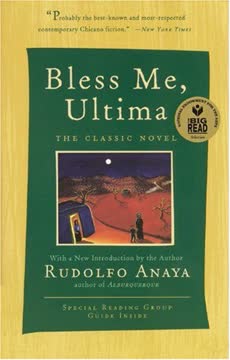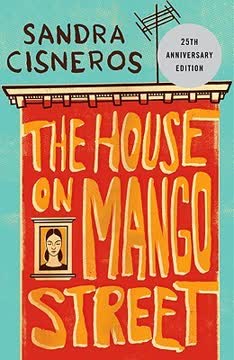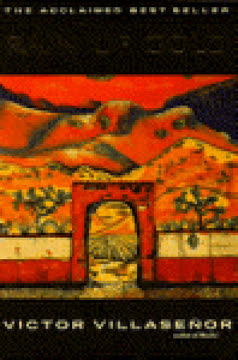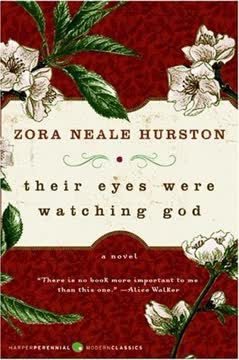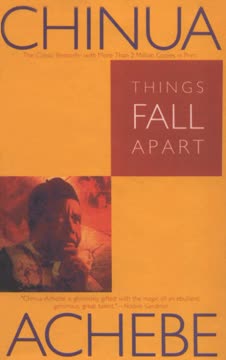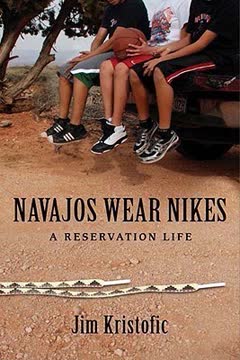Plot Summary
Ultima Arrives, Magic Begins
Antonio Márez, a young boy in rural New Mexico, welcomes Ultima, an elderly curandera (folk healer), into his family's home. Her arrival marks the beginning of a transformative period for Antonio, as she brings with her not only healing skills but also a deep connection to the land, indigenous spirituality, and the mysteries of nature. Antonio's parents, Gabriel and María, represent two conflicting heritages: the wild, wandering vaquero (cowboy) blood of the Márez and the settled, farming Luna lineage. Ultima's presence awakens Antonio's senses to the magic and spirit in the world around him, and she becomes his mentor, guiding him through the complexities of his family, culture, and the supernatural. Her owl, a constant companion, symbolizes her protective power and the blending of the natural and mystical.
Dreams, Destiny, and Divided Blood
Antonio is haunted by vivid, symbolic dreams that reflect his struggle to reconcile the opposing forces within his heritage. His mother dreams he will become a priest and bring honor to the Luna family, while his father hopes he will embrace the freedom of the Márez. These dreams, often filled with mythic imagery and family members arguing over his fate, foreshadow Antonio's journey toward self-discovery. The dreams also introduce the recurring theme of destiny versus free will, as Antonio wonders whether he can choose his own path or is bound by the expectations and bloodlines of his parents.
Death on the Bridge
Antonio's childhood is abruptly disrupted when he witnesses the killing of Lupito, a war-traumatized man who murders the town sheriff and is then hunted down and killed by a mob—including Antonio's own father. This traumatic event forces Antonio to confront the reality of death, sin, and the ambiguity of justice. He is left with questions about the fate of Lupito's soul, the nature of good and evil, and the role of God in a world where such violence can occur. The river, stained with blood, becomes a symbol of both life and the loss of innocence.
The Power of Ultima
Ultima's reputation as a healer and possible witch brings both respect and suspicion. When Antonio's uncle Lucas is cursed by the daughters of Tenorio, a malevolent saloon-keeper, Ultima is called upon to save him. Antonio assists her in a dramatic and dangerous healing ritual, witnessing firsthand the power of indigenous knowledge and the limitations of both doctors and priests. The experience deepens Antonio's bond with Ultima and exposes him to the reality of spiritual warfare, curses, and the coexistence of good and evil forces in the world.
School, Shame, and Struggle
Antonio begins school, where he is confronted with language barriers, cultural differences, and the shame of being an outsider. He is mocked for his lunch and struggles to fit in, but gradually finds friendship among other marginalized children. The experience of school highlights the tension between his home life and the wider American society, as well as the challenges of assimilation and the preservation of identity. Antonio's desire for knowledge and understanding grows, but so does his awareness of the complexities and prejudices of the world.
Brothers Return, Restlessness Grows
Antonio's three older brothers return from World War II, but they are restless, changed, and unable to settle back into family life. Their struggles with trauma, disillusionment, and the pull of the open road mirror the conflict between the Márez and Luna ways. The brothers' eventual departure leaves Antonio as the sole focus of his parents' hopes and dreams, intensifying his internal conflict about his future and identity.
The Golden Carp's Secret
Antonio learns from his friend Samuel about the legend of the golden carp, a pagan god who lives in the river and offers an alternative vision of divinity—one that is beautiful, compassionate, and tied to the land. The revelation of the golden carp shakes Antonio's Catholic faith and introduces him to the idea that there are many ways of understanding the sacred. The golden carp becomes a symbol of the possibility of synthesis between indigenous and Christian beliefs, and of Antonio's search for a personal, meaningful spirituality.
Curses, Cures, and Conflict
As Ultima's healing successes grow, so does the animosity of Tenorio, whose daughters suffer and die after crossing Ultima. Tenorio blames Ultima for their deaths and vows revenge, stirring up the townspeople's fear of witchcraft. Antonio witnesses the community's capacity for both gratitude and violence, and the precarious position of those who live between worlds—like Ultima and himself. The tension between rationality, superstition, and faith intensifies.
Witch-Hunt and Ultima's Trial
Tenorio leads a mob to Antonio's home, accusing Ultima of witchcraft and demanding her death. In a tense confrontation, Ultima is subjected to a traditional test—crossing a doorway marked with holy needles—to prove her innocence. She passes, but not before her owl attacks and blinds Tenorio, deepening his hatred. The episode exposes the dangers of ignorance, mob mentality, and the thin line between justice and vengeance. Antonio is left questioning the nature of good, evil, and the power of belief.
Loss, Learning, and Communion
Antonio's journey continues through school, catechism, and preparation for his first communion. He hopes that receiving the Eucharist will bring him understanding and peace, but is disappointed when God remains silent. The deaths of friends and the suffering he witnesses lead him to question the adequacy of Catholic doctrine to explain the world's pain and complexity. Antonio's friendships, especially with the doubting Florence and the faithful Cico, challenge him to think critically about faith, sin, and salvation.
The Tragedy of Narciso
Narciso, the town drunk but a fundamentally good man, is murdered by Tenorio while trying to warn Ultima of danger. Antonio witnesses Narciso's death and hears his final confession, a traumatic experience that deepens his understanding of mortality, sacrifice, and the ambiguity of sin. The event reinforces Antonio's doubts about a just and merciful God, as the innocent suffer and the wicked go unpunished.
Faith, Doubt, and Florence
Florence, Antonio's friend, is a skeptic who cannot believe in God after the suffering he has endured. His questions and eventual drowning force Antonio to grapple with the limitations of religious answers and the reality of loss. The death of Florence, who never received communion, symbolizes the failure of institutional religion to provide comfort or meaning for everyone. Antonio's crisis of faith reaches its peak as he searches for a way to reconcile the contradictions in his world.
The Final Summer of Innocence
Antonio spends a summer with his Luna uncles, working the land and learning the rhythms of nature. The experience grounds him, offering healing and a sense of belonging. He realizes that he is not bound to choose between the Márez and Luna ways, but can integrate both into his identity. The summer marks the end of his childhood innocence and the beginning of a more mature understanding of himself and the world.
Tenorio's Revenge Unleashed
Tenorio, consumed by vengeance after the deaths of his daughters, seeks to destroy Ultima by killing her owl, her spiritual guardian. Antonio, caught in the crossfire, races to warn Ultima but arrives too late to prevent tragedy. The final confrontation between Tenorio and Ultima's protectors results in Tenorio's death, but not before he mortally wounds the owl, sealing Ultima's fate.
The Owl's Sacrifice
The death of the owl signifies the end of Ultima's life and power. As Antonio mourns, Ultima explains that her spirit is bound to the owl, and that her work was always to heal and bring harmony, not to interfere with destiny. She asks Antonio to bury the owl and burn her medicines, passing on the responsibility of choosing his own path. Her blessing is her final gift, urging him to live with strength, love, and openness to the mysteries of life.
Ultima's Passing, Antonio's Blessing
Ultima dies, leaving Antonio with a sense of loss but also a new understanding of the interconnectedness of life, death, and the spirit. He realizes that the lessons of Ultima, the land, and his own experiences have prepared him to face the future with courage and compassion. The novel ends with Antonio burying the owl and reflecting on the enduring presence of Ultima's spirit in the world around him, ready to build his own dream from the fragments of his childhood.
Characters
Antonio Márez
Antonio is a thoughtful, introspective boy torn between the conflicting expectations of his parents and the cultural, spiritual, and moral complexities of his world. His journey is one of awakening—from innocence to experience, from unquestioning faith to critical inquiry. Antonio's relationships with Ultima, his family, and his friends shape his psychological development, as he grapples with questions of destiny, identity, good and evil, and the nature of God. His dreams and visions reflect his deep inner life and his struggle to synthesize the diverse influences around him.
Ultima (La Grande)
Ultima is a curandera, a healer who embodies the syncretic wisdom of indigenous, Spanish, and Mexican traditions. She is both revered and feared for her powers, which are rooted in harmony with nature and a profound empathy for others. Ultima serves as Antonio's mentor, teaching him to see the interconnectedness of all things and to question simplistic notions of good and evil. Her owl, her spiritual familiar, symbolizes her protective and mystical nature. Ultima's death marks the end of an era but also the transmission of her wisdom to Antonio.
Gabriel Márez
Gabriel represents the wandering, independent spirit of the vaquero. He dreams of moving west and resents the constraints of settled life. His relationship with Antonio is marked by both love and frustration, as he projects his own unfulfilled dreams onto his son. Gabriel's struggles with change, loss, and the erosion of traditional ways mirror the broader cultural transitions of the time.
María Luna
María is deeply religious and hopes Antonio will become a priest, fulfilling her family's legacy. She embodies the values of stability, community, and faith, but her rigidity sometimes clashes with Antonio's need for self-discovery. Her love is a source of comfort, but also of pressure, as she tries to shape Antonio's destiny according to her own dreams.
Tenorio Trementina
Tenorio is a saloon-keeper whose daughters practice witchcraft. Consumed by hatred after Ultima thwarts his family's curses, he becomes the novel's primary antagonist, representing the destructive power of vengeance, ignorance, and fanaticism. His relentless pursuit of Ultima and eventual murder of her owl lead to his own downfall, but not before he inflicts lasting harm.
Narciso
Narciso, known as the town drunk, is one of the few adults who stands up for Ultima and tries to protect her. His courage and sacrifice in warning Ultima of danger cost him his life, and his death is a pivotal moment in Antonio's loss of innocence. Narciso's complexity challenges simplistic moral judgments.
Florence
Florence is Antonio's friend who cannot believe in God after the loss and suffering he has endured. His doubts and eventual drowning force Antonio to confront the limitations of religious answers and the reality of existential despair. Florence's fate symbolizes the failure of institutional religion to provide comfort for all.
Samuel and Cico
Samuel introduces Antonio to the legend of the golden carp, while Cico becomes his companion in exploring this new myth. Together, they represent the possibility of alternative ways of understanding the sacred, outside the confines of Catholic doctrine. Their friendship helps Antonio expand his vision and question received truths.
Antonio's Brothers (León, Eugene, Andrew)
Antonio's older brothers return from war changed and unable to settle. Their struggles with trauma, alienation, and the search for meaning mirror Antonio's own journey, and their eventual departure leaves him to bear the weight of his parents' hopes alone.
The Owl
Ultima's owl is more than a pet; it is her spiritual guardian and the embodiment of her power. The owl's presence is a source of comfort and safety for Antonio, and its death marks the end of Ultima's life and the passing of her wisdom to the next generation.
Plot Devices
Magical Realism and Syncretism
The novel employs magical realism, seamlessly integrating supernatural elements—healing, curses, visions, and the golden carp—into the fabric of everyday life. This device allows Anaya to explore the coexistence and conflict between indigenous spirituality and Catholicism, and to challenge the boundaries between the rational and the mystical. The syncretic worldview embodied by Ultima and the golden carp offers Antonio a path toward synthesis and personal meaning.
Dreams and Symbolism
Antonio's dreams serve as a narrative device to externalize his psychological struggles and foreshadow key events. The recurring symbols of the river, the owl, the moon, and the golden carp provide a rich tapestry of meaning, connecting personal experience to universal themes of life, death, and transformation.
Coming-of-Age Structure
The novel follows Antonio's journey from innocence to experience, structured around key rites of passage: witnessing death, starting school, receiving communion, and losing loved ones. Each event tests his faith, identity, and understanding, propelling his psychological and spiritual growth.
Foreshadowing and Dualities
The narrative is filled with foreshadowing—through dreams, prophecies, and the actions of characters like Tenorio and Ultima. The persistent dualities (Márez/Luna, Catholic/indigenous, good/evil, freedom/order) create tension and drive Antonio's quest to find a harmonious integration of opposites.
Analysis
Bless Me, Ultima is a coming-of-age novel that transcends its Chicano and Southwestern setting to address universal questions of belonging, morality, and the nature of the sacred. Through Antonio's eyes, Anaya explores the collision and potential synthesis of indigenous and Catholic worldviews, the limitations of dogma, and the healing power of empathy and connection to the land. The novel challenges readers to question inherited beliefs, embrace complexity, and find their own path to understanding. Ultima's legacy is not just her magic, but her example of living with compassion, openness, and respect for all that is good and beautiful. In a world marked by violence, loss, and uncertainty, Antonio's journey offers hope that wisdom and harmony can be found—not by choosing one tradition over another, but by weaving together the best of all.
Last updated:
FAQ
Synopsis & Basic Details
What is Bless Me, Ultima about?
- A Boy's Spiritual Quest: Bless Me, Ultima follows Antonio Márez, a young boy growing up in rural New Mexico during World War II, as he navigates the complex spiritual and cultural landscape shaped by his family's conflicting heritages and the arrival of a wise folk healer, Ultima. The narrative explores Antonio's coming-of-age, his struggle to reconcile Catholic doctrine with indigenous spirituality, and his search for understanding in a world marked by both beauty and violence.
- Clash of Cultures: The story centers on Antonio's internal conflict, pulled between his mother's devout Luna farming lineage, which desires him to become a priest, and his father's restless Márez vaquero heritage, which yearns for freedom and the open llano. Ultima acts as his spiritual guide, introducing him to a syncretic worldview that challenges his preconceived notions of good, evil, and God.
- Loss of Innocence: Through a series of traumatic events, including witnessing murders and the suffering of loved ones, Antonio confronts the harsh realities of life, death, and moral ambiguity. These experiences force him to question his faith and seek a personal truth that can encompass the contradictions he observes, ultimately shaping his identity and understanding of the world.
Why should I read Bless Me, Ultima?
- Rich Cultural Immersion: Readers are drawn into the vibrant, often mystical, world of New Mexican Chicano culture, experiencing its unique blend of Spanish, Mexican, and Native American traditions, folklore, and language. The novel offers a profound exploration of cultural identity and the challenges of assimilation.
- Universal Themes Explored: Beyond its specific setting, Bless Me, Ultima delves into timeless themes such as the nature of good and evil, the search for faith and meaning, the transition from childhood innocence to adult understanding, and the power of mentorship. Antonio's spiritual journey resonates deeply with anyone grappling with life's big questions.
- Masterful Magical Realism: Rudolfo Anaya seamlessly weaves supernatural elements, vivid dreams, and ancient myths into a realistic narrative, creating a captivating reading experience. This blend of the ordinary and extraordinary enriches the story, inviting readers to consider different ways of perceiving reality and the sacred.
What is the background of Bless Me, Ultima?
- Post-WWII New Mexico: The story is set in the late 1940s, a period of significant change in New Mexico. The return of soldiers from World War II, like Antonio's brothers, brought new ideas and restlessness, challenging traditional ways of life in small, isolated communities. This historical context underscores themes of societal transition and the erosion of old customs.
- Chicano Cultural Heritage: Anaya draws heavily from his own experiences and the rich cultural tapestry of New Mexico, incorporating elements of curanderismo (folk healing), vaquero life, Luna farming traditions, and indigenous myths. The novel reflects the syncretic nature of Chicano spirituality, where Catholic beliefs often intertwine with pre-Columbian and Native American spiritual practices.
- Landscape as Character: The geographical setting of the llano (open plains) and the Pecos River valley is not merely a backdrop but an active force shaping the characters' identities and worldviews. The stark beauty and harshness of the landscape symbolize the freedom and wildness of the Márez, and the rootedness and fertility of the Luna, influencing Antonio's internal struggle.
What are the most memorable quotes in Bless Me, Ultima?
- "The golden carp is a god.": This simple yet profound statement by Samuel (Chapter 7) shatters Antonio's singular Catholic worldview, introducing the radical idea of alternative deities and challenging the exclusivity of his inherited faith. It marks a pivotal moment in Antonio's spiritual awakening and the novel's exploration of religious syncretism.
- "A man's destiny must unfold itself like a flower, with only the sun and the earth and water making it blossom, and no one else meddling in it.": Ultima's wisdom (Chapter 20) encapsulates the novel's central theme of self-discovery and the importance of allowing one's true path to emerge naturally, free from external pressures or predetermined expectations. This quote highlights the organic, naturalistic philosophy she imparts to Antonio.
- "The waters are one, Antonio.": Ultima's ultimate revelation in Antonio's dream (Chapter 11) synthesizes the conflicting elements of his world—the sea and the moon, the river and the sky, God and the golden carp—into a unified, interconnected whole. This quote represents the culmination of Antonio's journey towards understanding the underlying harmony of existence, transcending dualities.
What writing style, narrative choices, and literary techniques does Rudolfo Anaya use?
- First-Person Retrospective Narration: Anaya employs a first-person narrative from Antonio's adult perspective looking back on his childhood, allowing for a blend of innocent observation and mature reflection. This narrative choice imbues the story with a sense of nostalgia and allows the narrator to foreshadow events and offer philosophical insights that a child character could not articulate in the moment.
- Lyrical and Evocative Prose: The writing is characterized by its poetic quality, rich sensory details, and vivid descriptions of the New Mexican landscape, making the setting a living, breathing entity. Anaya's prose often blurs the line between reality and the spiritual, enhancing the novel's magical realism and drawing the reader into Antonio's subjective experience.
- Symbolism and Archetypal Imagery: Anaya extensively uses symbolism (e.g., the owl, the river, the golden carp, the juniper tree, the sun and moon) and archetypal figures (the wise old woman, the restless father, the nurturing mother) to explore universal themes and cultural conflicts. This technique gives the story a mythic quality, connecting Antonio's personal journey to broader human experiences and ancient traditions.
Hidden Details & Subtle Connections
What are some minor details that add significant meaning in Bless Me, Ultima?
- The Falling Needles: After Ultima passes the witch test by walking through the door marked with holy needles, Antonio later finds the needles on the ground (Chapter 12). This subtle detail suggests that while Ultima's power is good and she is not a "bruja" in the malicious sense, her magic operates outside the rigid confines of Catholic ritual, causing the "holy" barrier to simply fall away rather than being overcome by a direct confrontation of forces. It hints at a different, more natural order of power.
- Ultima's Scapular: Ultima gives Antonio her scapular, a small pouch of herbs, for protection (Chapter 12), which he wears under his shirt. This act is a profound transfer of spiritual guardianship and a subtle rejection of purely Catholic symbols for Antonio's personal protection. It signifies Ultima's direct, personal influence on Antonio's spiritual path, offering a tangible, earthy form of grace that contrasts with the abstract nature of the church's sacraments.
- The Wind's Voice: Antonio's father often speaks of the wind as having a voice, particularly when discussing the changes on the llano or the atomic bomb (Chapter 17). This personification of the wind subtly reinforces the animistic worldview that Ultima embodies, where nature is alive and communicates. It shows Gabriel, despite his Márez restlessness, shares a deep, intuitive connection to the land's spirit, bridging his and Ultima's perspectives.
What are some subtle foreshadowing and callbacks in Bless Me, Ultima?
- Antonio's Birth Dream's Echoes: Antonio's vivid dream of his birth (Chapter 1), where his Márez and Luna relatives fight over his destiny, is a powerful foreshadowing of his entire spiritual and identity struggle. This dream is not just a one-time vision; it's repeatedly referenced and re-experienced, such as when his brothers return from war and mock his mother's dream of him becoming a priest (Chapter 8), constantly reminding Antonio of the deep-seated conflict within his blood.
- The Owl's Shifting Hoots: Ultima's owl initially hoots a "soft hooting... like a song" that lulls Antonio to sleep (Chapter 1), symbolizing peace and protection. However, as danger approaches, particularly before Narciso's murder and Tenorio's final attack, the owl's cries become "a danger cry" or "cries of alarm" (Chapter 12, 20). This subtle shift in the owl's vocalization foreshadows impending violence and highlights its role as Ultima's spiritual familiar and a barometer of the world's harmony.
- The River's Stained Waters: After Lupito's death, Antonio observes the river's "brown waters would be stained with blood, forever and ever and ever" (Chapter 2). This early observation foreshadows not only the continued violence and loss Antonio will witness but also his ongoing struggle to cleanse the world and his own soul of sin and suffering. The river, a source of life and a symbol of the Golden Carp, becomes a recurring motif for the indelible marks of human actions.
What are some unexpected character connections in Bless Me, Ultima?
- Samuel and the Vitamin Kid's Brotherhood: The revelation that Samuel, the quiet, wise boy who introduces Antonio to the Golden Carp, is the brother of the energetic, almost mythical "Vitamin Kid" (Chapter 8) is unexpected. This connection subtly links the spiritual and the physical, the contemplative and the active, suggesting that different paths can emerge from the same family roots and that even seemingly disparate individuals share a common origin.
- Narciso's Hidden Kindness to María: Despite his reputation as the town drunk, Narciso is revealed to have been a steadfast friend to María Luna, Antonio's mother, particularly during the difficult births of her twins (Chapter 12). This connection challenges Antonio's simplistic view of Narciso as merely a "drunkard" and highlights the complex, often hidden, goodness in people, reinforcing Ultima's teaching that judgment should be withheld.
- Ultima's Past with Antonio's Grandfather: Ultima mentions that Antonio's Luna grandfather and she are "old friends" (Chapter 4), implying a deeper, long-standing connection to the Luna family beyond just being María's midwife. This detail suggests that Ultima's influence and wisdom have been a quiet, guiding force in the Luna family for generations, further solidifying her integral role in Antonio's heritage and destiny.
Who are the most significant supporting characters in Bless Me, Ultima?
- Narciso, the Moral Compass: Despite his alcoholism, Narciso emerges as a crucial moral figure, embodying courage and selflessness. His attempts to reason with the mob during Lupito's death (Chapter 2) and his ultimate sacrifice to warn Ultima (Chapter 13) highlight his inherent goodness and challenge Antonio's simplistic understanding of sin and virtue. Narciso's death is a profound lesson in the cost of doing good.
- Florence, the Skeptical Catalyst: Florence, Antonio's friend who openly questions God due to his suffering, serves as a vital intellectual and spiritual foil for Antonio. His unwavering doubt forces Antonio to critically examine his own faith and the limitations of Catholic dogma (Chapter 17, 18). Florence's tragic death further deepens Antonio's crisis of faith, pushing him towards a more personal and inclusive understanding of spirituality.
- Samuel and Cico, Guides to Alternative Truths: Samuel and Cico are instrumental in introducing Antonio to the legend of the Golden Carp, a pagan deity that offers a contrasting, nature-based spirituality (Chapter 7, 11). Their friendship provides Antonio with an alternative framework for understanding the divine, demonstrating that truth and divinity can exist outside the confines of the Church and are deeply intertwined with the natural world.
Psychological, Emotional, & Relational Analysis
What are some unspoken motivations of the characters in Bless Me, Ultima?
- Gabriel's Yearning for Lost Freedom: Gabriel Márez's constant talk of moving west to California and his lament for the "freedom of the llano" (Chapter 6) is an unspoken desire to reclaim a lost identity and escape the perceived emasculation of settled town life. His drinking is a coping mechanism for the unfulfilled dreams and the feeling of being "shackled to one piece of land" (Chapter 3), a deep-seated regret that he projects onto his sons.
- María's Fear of Márez Blood: María Luna's intense desire for Antonio to become a priest is driven by an unspoken fear of the "wild, restless" Márez blood (Chapter 4) that she believes led her older sons astray and could lead Antonio to a life of wandering and sin. Her dream for Antonio is a protective measure, an attempt to anchor him to the stability and moral certainty of the Luna farming tradition and the Church.
- Andrew's Lingering Guilt and Loyalty: Andrew's decision to stay behind when his brothers León and Eugene leave (Chapter 9), and his later presence at Rosie's house, hints at an unspoken motivation of guilt or a desire to protect his mother from further disappointment. His initial reluctance to leave suggests a deep-seated loyalty to his family, even as he grapples with his own desires and the disillusionment of war, making his eventual departure with his brothers more complex than simple restlessness.
What psychological complexities do the characters exhibit in Bless Me, Ultima?
- Antonio's Syncretic Identity Formation: Antonio grapples with profound psychological complexity as he attempts to synthesize the conflicting worldviews of his parents and Ultima. His mind is a battleground for Catholic dogma, Márez freedom, Luna stability, and indigenous spirituality, leading to intense internal debates and vivid dreams that reflect his struggle to forge a coherent identity rather than choosing one path over another.
- Tenorio's Obsessive Vengeance: Tenorio Trementina's character is psychologically complex, driven by an all-consuming, almost pathological need for vengeance after his daughters' deaths. His inability to accept natural causes or the limitations of his own power transforms his grief into a destructive obsession, blinding him literally and figuratively, and leading him to commit further acts of evil, as seen in his murder of Narciso and Ultima's owl.
- Florence's Existential Despair: Florence's atheism stems from a deep psychological wound caused by the suffering and loss in his life, particularly the death of his mother and the perceived injustice of God. His inability to reconcile a benevolent God with the harsh realities of the world leads to a profound existential despair, making him a poignant figure who challenges Antonio's simplistic notions of faith and divine justice.
What are the major emotional turning points in Bless Me, Ultima?
- Lupito's Death and Loss of Innocence: The brutal murder of Lupito (Chapter 2) is Antonio's first direct encounter with death and violence, shattering his childhood innocence. This event marks a significant emotional turning point, as he grapples with the concept of mortal sin, the ambiguity of justice, and the realization that evil exists in the world, leading to his initial crisis of faith and a profound sense of fear and sadness.
- Ultima's Cure of Lucas: Witnessing Ultima's dramatic and successful cure of his uncle Lucas (Chapter 10), after both doctors and priests have failed, is an emotional revelation for Antonio. It instills in him a deep respect for Ultima's power and indigenous healing, but also creates emotional confusion about the hierarchy of spiritual authority and the efficacy of the Church's teachings.
- Florence's Drowning and Crisis of Faith: Florence's drowning (Chapter 21), especially after his open questioning of God and Antonio's inability to share the Golden Carp's message with him, is a devastating emotional blow. This event pushes Antonio into a profound crisis of faith, forcing him to confront the silence of God and the limits of traditional religious answers in the face of inexplicable suffering and loss.
How do relationship dynamics evolve in Bless Me, Ultima?
- Antonio's Shifting Parental Allegiances: Antonio's relationship with his parents evolves from simple filial love to a complex negotiation of their conflicting dreams for him. Initially, he feels immense pressure to fulfill his mother's desire for him to be a priest and his father's dream of a vaquero, but through Ultima's guidance, he learns to synthesize these influences rather than choosing one, asserting his own emerging identity.
- Ultima as a Foundational Mentor: Ultima's relationship with Antonio deepens from that of a respected elder to a profound spiritual mentor and surrogate grandmother. She becomes the central figure in his emotional and intellectual development, offering unconditional love, wisdom, and a holistic worldview that helps him process trauma and understand the interconnectedness of life. Their bond transcends traditional family ties, becoming the anchor of his journey.
- The Brothers' Disillusioned Return: The return of Antonio's older brothers from war dramatically alters family dynamics, as their restlessness and disillusionment clash with their parents' expectations. Their inability to settle and their eventual departure highlight the generational divide and the impact of external forces on family unity, leaving Antonio to bear the weight of his parents' unfulfilled dreams and accelerating his own path to maturity.
Interpretation & Debate
Which parts of the story remain ambiguous or open-ended in Bless Me, Ultima?
- The Nature of the Golden Carp: The Golden Carp's existence and divinity remain ambiguous; it is presented as a pagan god, a symbol of nature's power, and a myth believed by children and a few adults. Antonio's struggle to reconcile it with his Catholic God leaves its ultimate "truth" open to interpretation, allowing readers to ponder whether it represents a literal alternative deity or a metaphorical understanding of spiritual interconnectedness.
- Ultima's True Power and Identity: While Ultima is clearly a curandera, the exact source and limits of her power are never fully defined. Is she a shaman, a witch (as Tenorio claims), or simply a woman with profound knowledge of herbs and a deep connection to nature? Her ability to heal, her owl familiar, and her calm demeanor in the face of evil suggest a power that transcends simple medicine, leaving her identity as a figure of mystical ambiguity.
- Antonio's Future Path: The novel concludes with Antonio burying Ultima's owl and reflecting on building his "own dream," but his specific future path—whether he becomes a priest, a vaquero, a farmer, or a storyteller—remains open-ended. This ambiguity emphasizes that his journey is one of continuous synthesis and self-discovery, rather than a definitive choice, allowing readers to imagine his future as a blend of all the influences that shaped him.
What are some debatable, controversial scenes or moments in Bless Me, Ultima?
- Florence's Atheism and Drowning: Florence's open questioning of God and his subsequent drowning (Chapter 17, 21) are highly debatable. Readers often debate whether his death is a divine punishment for his lack of faith, a tragic accident, or a symbolic representation of the Church's failure to provide solace for all. This scene directly challenges the comfort of traditional religious answers and forces a confrontation with existential suffering.
- The Christmas Play's Chaos: The chaotic and irreverent Christmas play (Chapter 19), where the boys mock religious figures and sacred events, can be seen as controversial. While providing comic relief, it also highlights the boys' lack of understanding or respect for religious rituals, contrasting sharply with Antonio's earnest spiritual quest and raising questions about the effectiveness of religious instruction.
- The "Indian Torture" Scene: The scene where Antonio's schoolmates physically punish him, calling it "Indian torture" (Chapter 18), for absolving Florence's "sins" is a disturbing and controversial moment. It exposes the cruelty of mob mentality, the pressure to conform, and the casual racism prevalent among children, forcing Antonio to confront the harsh realities of human nature and the cost of standing up for one's beliefs.
Bless Me, Ultima Ending Explained: How It Ends & What It Means
Review Summary
Bless Me, Ultima is a coming-of-age story set in 1940s New Mexico, following young Antonio as he grapples with faith, culture, and identity. The novel explores themes of good vs. evil, tradition vs. modernity, and the blending of Catholic and indigenous beliefs. While praised for its lyrical prose and cultural significance, some readers found it slow-paced or objectionable due to language and religious content. The book has faced censorship attempts but remains an important work in Chicano literature, resonating with many readers for its portrayal of cultural complexity and spiritual growth.
Similar Books
Download PDF
Download EPUB
.epub digital book format is ideal for reading ebooks on phones, tablets, and e-readers.
